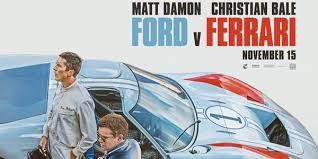Knives Out is directed by Rian Johnson who made his debut with Brick. Following that rather clever neo-noir you have to wonder whether Johnson’s career has been on an odd trajectory. His debut was followed by a caper movie, then a techno futurist ‘thriller’, then an episode of Star Wars and now Knives Out, dubbed in the ads as ‘A Rian Johnson whodunnit’. This time it’s an updated Agatha Christie country house variation with Daniel Craig as the oddly spoken detective (a voice described as a Foghorn Leghorn impersonation by another character.) Christopher Plummer as the family grandee dies in the opening scene and the family and the staff are assembled as three cops, lead by private eye Craig investigate. From there on, for another two hours or so, Johnson rumbles through the conventions, twists, turns, misleads… Right. I think I would prefer the career to head towards Westlake or Highsmith.
Anyone who can write these things must have a very good system to ensure that all the clues are dropped. Unlike in Christie’s time you now have to take into account such things as mobile phones, tracking devices, CCTV, DNA and forensics. The audience knows all those because they have spent the last decades watching CSI variations. Johnson however seems to have an interest in the archaic formulas of detective stories and police procedurals. Hard to say whether the archaism will set pulses throbbing, though the preview crowd was laughing out loud quite a bit….
Marianne & Leonard: Words of Love is Nick Broomfield’s homage to the beautiful couple who met on Hydra at the same time as George Johnston and Charmian Clift, and their three children, were also living on the island in a small community of expat writers and artists. Cohen wrote ‘Beautiful Losers’ during the eight years he lived there mostly with Marianne Ihlen, a Norwegian beauty, and her son Axel. At the end of it Cohen was writing songs and went off and sold them first to Judy Collins before she encouraged him to sing them himself. The most beautiful moment in the film, voice-overed at both the start and finish, is the letter that Cohen wrote to Ihlen when she was dying of leaukemia, not long after there had been one final reunion when she sat in the front row of his Oslo concert when he went back on the road in his seventies because his agent had ripped him off for millions.
For a lot of the film Cohen doesn’t come off to well. An egotist, a massive philanderer ('its hard to hit on a girl when the camera is watching'), often totally insensitive to Marianne and Axel but stringing them along, he’s the classic case of the self-absorbed famous artist. Then he changes, Buddhism looms and, after the rip-off of his fortune becomes one of the great concert acts, grossing $15 million a year on perpetual tour with an entourage of 59 people to support. The final moments of reconciliation and forgiveness are very touching.
Broomfield lucked into the subject. He met Marianne in his own youth and his home movies taken during their short relationship provide some remarkable footage to kickstart the story. It’s a long story and even veers off into a small side chapter about the return to Australia of George Johnston and Charmian Clift and their children which, in its shorthand, I think may be more than a bit unfair to them.
Ford v Ferrari hardly needs a mention in a blog that maybe a hundred people read except….I was struck by the comparisons I felt with the local variation of it, the box office success Ride Like a Girl, now nearing the end of a run which has seen it gather up $11m or so from punters eager to see a feel good story of the battler who overcomes all the odds. On that one I confess I’m in the school articulated in The Guardian by Luke Buckmaster. But Ford vs Ferrari is simply a far more thrilling movie, filmed by James Mangold with all the modern skills that Hollywood hundred million dollar movies have at their disposal. The story of course also has the virtue, unlike the Oz movie, of not knowing the ‘true story’ and it has a genuine villain, a creep Ford executive who cant stand seeing others succeed by thinking outside the loop. The scene where Henry Ford II is hustled into a racecar and goes for a short brain snapping burn as Matt Damon’s Carroll Shelby demonstrates just what it’s like to be a race driver is as smart as any this year.



No comments:
Post a Comment
Note: only a member of this blog may post a comment.